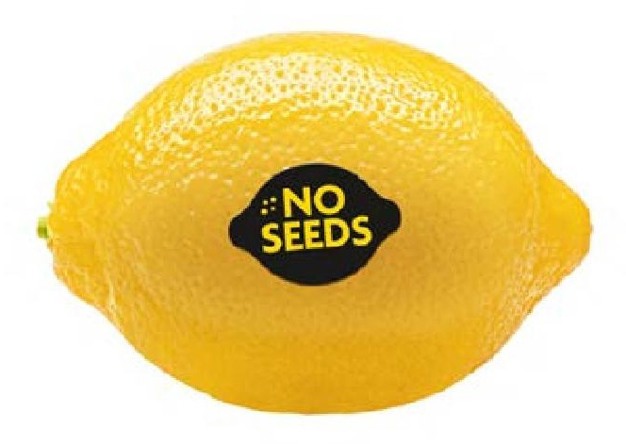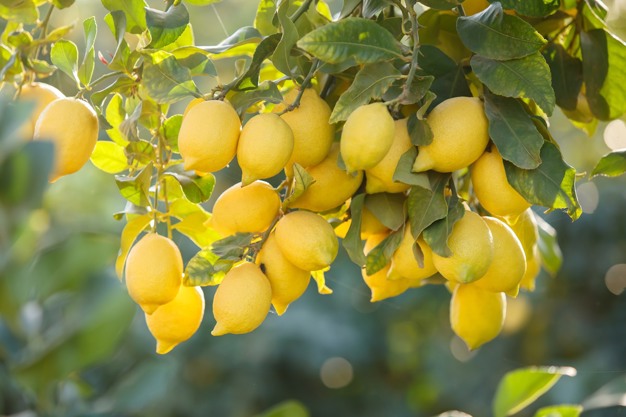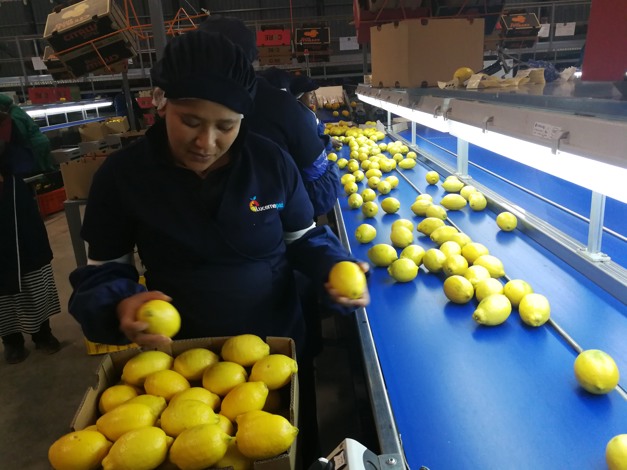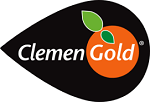"We are excited to see that seedless lemons are slowly but surely cannibalising shelf space from seeded lemons," remarks Nico van Schalkwyk, CEO of Fruitalyst, marketing division of ClemenGold International which has been at the forefront of promoting seedless lemons in South Africa through its principal producer Indigo Fruit Farming.
Seedless lemons, in their view, are an antidote to the current oversupply of conventional lemons following years of heedless conventional lemon expansion.
Adéle Ackermann, marketing manager at ClemenGold International, says: "To bolster this category from South Africa, we've introduced a fruit sticker, freely available for use by any seedless lemon producer. The sticker prominently highlights the unique selling proposition of seedlessness at the point of sale with its clear 'NO SEEDS' message to draw the shopper's attention."

They intend the initiative to foster collaboration among local producers, thereby positively influencing the demand for South African seedless lemons. "Ultimately, our objective is to convert lemon shelves worldwide to seedless lemons," she adds.
Upselling lemons: solution to inelastic lemon demand
Retailers can't simply increase demand by lowering prices, unlike mandarins, Van Schalkwyk points out. "With mandarins, for example, one could move large volumes - easily doubling the volumes - with a promotion of buy one get one free. Not so with lemons because its demand is inelastic. A consumer who buys one lemon a week will not buy more if the price drops."
He remarks that even with marketing campaigns that showcase the different uses of lemons, it's difficult to move the dial on shopper behaviour.
Moreover, retailers aren't keen on cheap lemons, and they don't need to be: the lemon buyer is a very stable consumer category, purchasing the pantry staple – usually not in large volumes - irrespective of price.
Retailers do insist on a twelve-month supply which is still a challenge from a South African point of view.
The solution to this impasse is seedless lemons which offer a point of difference that retailers can work with and where retailers can allocate a premium price point, he says. "In fact, it allows retailers to mitigate risk by upselling lemons and being able to distinguish within the category."

Major seedless lemon expansion envisioned
Notable seedless lemon successes have been scored at Edeka in Germany and ASDA in England where retailers have shown themselves willing to convert lemon shelf space to seedless.
Seedless lemons perform great in cold steri (demanded by many markets) which is a major benefit.
"Although we've entered the Chinese market with a few customers as soon as that market protocol on cold steri changed favourably for lemons from South Africa, we see Europe and Japan as our main focus areas for expansion. We gather that Europe's top ten percent of the market is willing to pay a premium for seedlessness, both among individual consumers and within the food service industry (restaurants, bars, hotels and catering)."
In South Africa seedless lemons are available at ClemenGold's longstanding partner, premium retailer Woolworths.

Currently, global lemon plantings amount to an estimated 170,000ha. Of this, only some 5,000ha is devoted to seedless varieties. South Africa, in turn, has around 1,700ha planted to seedless lemons.
"If we can convince only ten percent of consumers to pay a premium for the convenience of seedless lemons we will require a further estimated 12,000ha of global plantings to fulfil the demand. Based on an evaluation of the demand in future, we believe that South African growers could do well to consider planting seedless lemon varieties to address and benefit from the demand," Van Schalkwyk says.
He points to recent big investment into seedless lemon orchards in the Western Cape to supply Wonderful Citrus in the United States, "We are able to supply them with counter season lemons and mandarins – a wonderful opportunity for us and participating growers." For more information:
For more information:
Adéle Ackermann
ClemenGold International
Email: info@clemengold.com
https://www.clemengold.com/brand/lemongold/
